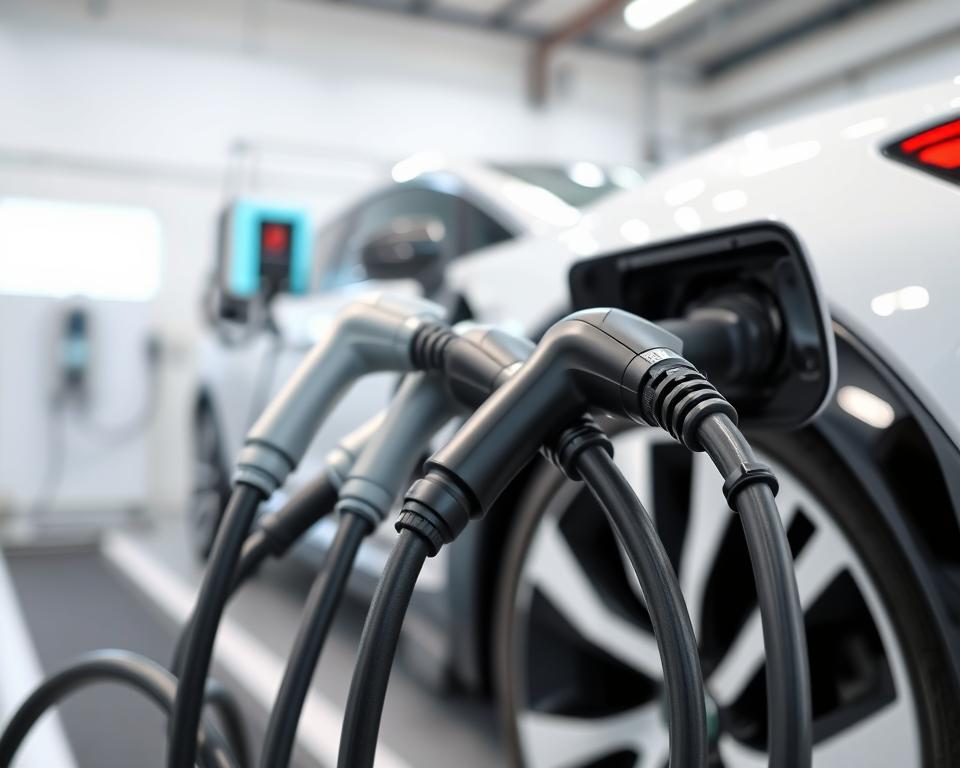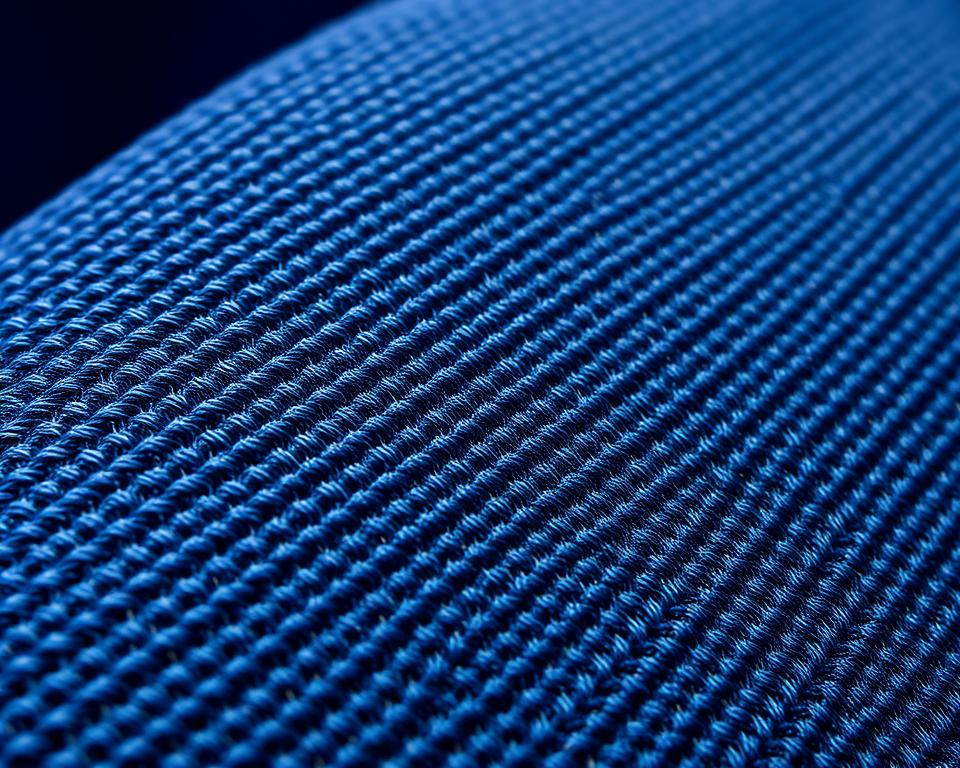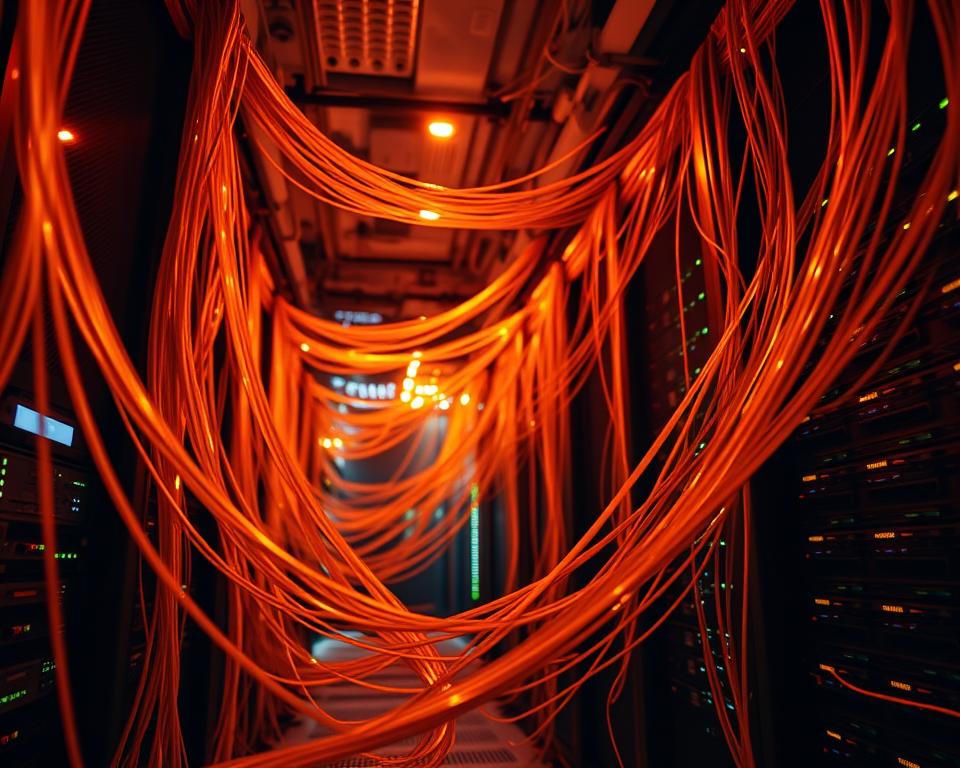Renowned EV Charging Cable Manufacturers for Your Electric Vehicle
The EV market is expanding rapidly, with the demand for trustworthy and high-performance charging solutions growing exponentially. As of now, leading companies have been at the forefront of this change, providing high-quality charging infrastructure. Southwire, for instance, has been a significant player since 2014, boasting over 1000 five-star reviews and a 75-year legacy in electrical construction.
The rise in electric vehicle adoption necessitates the need for long-lasting, rapid, and reliable Charger Manufacturers in China. Leading brands are developing to address changing requirements, offering solutions that improve the overall charging experience.
Knowing the distinctions between various charging solutions is crucial for making informed decisions. Quality charging infrastructure has a direct effect on vehicle performance and user experience.
Key Takeaways
- Top manufacturers offer high-quality charging cables for improved durability and safety.
- Growing EV adoption fuels demand for fast, reliable infrastructure.
- Top brands pioneer solutions for changing EV requirements.
- High-grade cables improve energy transfer and driving range.
- Buying premium chargers pays off over time.

The Growing Importance of Quality EV Charging Cables
With EVs on the rise, the significance of high-quality EV charging cables is immense. The efficiency, security, and dependability of electric vehicle charging systems depend heavily on the quality of the charging cables used.
The Evolution of Electric Vehicle Charging Technology
Charging tech for EVs has evolved rapidly, with a focus on speedy charge times and improved safety features. Modern EV charging cables are designed to meet these evolving needs, incorporating superior materials and construction techniques to minimize energy waste and maximize charging efficiency.
The Case for Premium Charging Infrastructure
High-grade cables ensure reliable, safe charging. Durable features, such as weather resistance and flexibility in extreme temperatures, maintain performance in harsh conditions. Moreover, meeting standards and following protocols are crucial in ensuring that cables meet rigorous safety requirements.
| Key Features | Benefits |
|---|---|
| Superior materials and construction | Reduced energy waste |
| Enhanced durability features | Weather resistance, flexibility in extreme temperatures |
| Standards adherence | Certified safety |
| Maintainability | Repairable design for longevity |
Our high-performance cable solutions, such as those offered by Aichie Tech Electronics, are tested for quality and compliance in The Cable Lab. With repairable Portable EV Charger, owners save money long-term through repairs, reducing waste and protecting the planet.
Premier Chinese EV Cable Suppliers
China is home to a growing number of EV charging cable manufacturers. These companies are crucial in supporting the expanding electric vehicle (EV) market, providing high-quality automotive cables designed for various charging needs.
Wottz – Pioneers in EV Cables Since 2014
Wottz has been a leading cable manufacturer since 2014. They offer a range of cables that meet the specific requirements of EV charging systems, from Mode 1, 2, 3, and DC Fast Charging (Mode 4).
Aichie Tech Electronics – 75 Years in Electrical Solutions
Aichie Tech Electronics leverages 75 years of electrical expertise in its EV cables. Their products are designed to meet the demands of both domestic and commercial EV charging infrastructure.
More Leading EV Cable Brands
Beyond industry leaders like Wottz and Southwire, other manufacturers are making their mark by focusing on specific automotive applications or technological innovations in electric vehicle charging. These include Type 1 & 2 connector experts, as well as companies developing cables with enhanced flexibility and resistance to environmental factors.
A Guide to EV Cable Types
As electric vehicles become increasingly popular, understanding the various types of EV Charging Cables is crucial for optimal charging experiences. Knowing cable types ensures you pick the right charger. The diversity in EV charging infrastructure demands a closer look at the cable options.
Comparing SAE J1772 and Mennekes Cables
Type1 and Type2 charging cables are two common standards used for EV charging. Type 1, also known as SAE J1772, is North American standard, while Type 2, or Mennekes, is the standard in Europe. The choice between these cables depends on the vehicle’s connector type and the charging station’s compatibility. Type 2 cables often support higher charging capacities, making them ideal for speed.
Level 2 & Fast DC Cables
Level2 charging cables offer faster charging than Level1, using 240V AC power to deliver up to 19.2 kW of power. DC Fast Charging cables, on the other hand, provide rapid charging by converting AC power to DC within the charging station, delivering rapid fill-ups. These cables are essential for long-distance EV travel, letting EVs charge in minutes.
Granny Chargers vs Tethered Units
Portable EV charging cables, such as “Granny chargers,” offer flexibility by allowing owners to charge their vehicles from standard household outlets. Tethered cables are fixed to charging stations, providing a convenient but less flexible charging solution. The choice comes down to flexibility vs convenience.
Cable length, power rating, and connector type matter most. For instance, portable charging cables range from simple L1 cords to full L2 kits. Vehicle-to-load (V2L) cables represent an emerging category, enabling EVs to power external devices.
- Flexible granny chargers and L2 units suit various needs.
- Tethered cables are permanently attached to charging stations, limiting flexibility but eliminating the need for personal cables.
- Cable length is a critical consideration, with options ranging from 5-meter standard cables to 50-meter extended cables.
Essential EV Cable Characteristics
Premium cables stand out for durability, safety, and performance. These features are vital to safe, efficient charging.
Durability and Weather Resistance
Cables must withstand rain, sun, and cold. Manufacturers like Wottz and Southwire craft their cables from recyclable materials that adhere to ROHS compliance, ensuring they withstand various environmental conditions. Their repairable builds support longevity and eco-reuse.
User-Friendly Design
Cables need to flex yet remain tough. High-quality EV charging cables are built for easy handling without sacrificing strength. This flexibility is combined with rugged construction for lasting performance.
Certified Safety and Standards
Approved safety marks ensure reliable performance. They ensure their products meet or exceed standards such as IEC62196 for connectors and UL2594 in North America. Rigorous third-party testing evaluates electrical safety, mechanical durability, and environmental resistance.
| Certification | Description | Region |
|---|---|---|
| IEC62196 | Connector safety standards | International |
| UL2594 | Standard for electric vehicle supply equipment | North America |
| ROHS | Restriction of hazardous substances | International |
By focusing on these key features, manufacturers can provide EV charging cables that not only meet the highest quality and safety standards but also enhance the overall user experience.
Next-Gen Charging Cable Tech
The latest developments in EV charging cable technology are revolutionizing the way we charge our vehicles, with a focus on ultra-fast charging, reliable data transfer, and eco-friendly materials.
Liquid-Cooled Charging Cables for Ultra-Fast Charging
Liquid-cooled charging cables are emerging as a key technology for ultra-fast charging, enabling electric vehicles to charge at significantly higher speeds without overheating.
Signal-Boosting Contact Designs
Hyperboloid contacts are being integrated into EV charging cables to enhance signal integrity, ensuring reliable and efficient data transfer during the charging process.
Eco-Friendly Cable Compounds
Companies focus on green materials, minimizing ecological footprint with RoHS-compliant, serviceable builds. For instance, companies like Aichie Tech Electronics and Wottz are adopting serviceable design philosophies and RoHS compliance to minimize waste and promote recycling.
Programs for cable recycling, non-toxic compounds, and TPU sheaths mark the eco shift.
How to Select the Right EV Charging Cable for Your Vehicle
Selecting the proper cable ensures optimal performance. To make an informed decision, consider several key factors.
Matching Cable to Vehicle
Verify your car’s inlet and cable plug match. Your vehicle’s onboard charger capacity determines the maximum AC charging rate it can accept.
Determining the Optimal Cable Length
Select a cord length based on parking and outlet location. A longer cable adds reach at the cost of extra weight.
Matching Power and Speed
Match your cable’s power handling to your vehicle’s capabilities. Standard Level 2 home charging operates at 7.2 kW, but some vehicles support up to 19.2 kW with appropriate electrical service.
Mind these points to pick a cable that fits your EV lifestyle.
Final Thoughts on Premium EV Cables
With EV growth unabated, premium cables are essential. Investing in premium EV charging cables from established manufacturers like Wottz and Aichie Tech Electronics ensures superior durability and lower lifetime costs. Their serviceable designs allow for component replacement, reducing waste and costs. This approach aligns with the core values of electric vehicle ownership by promoting sustainability.
Selecting top-grade infrastructure prepares you for next-gen charging.


